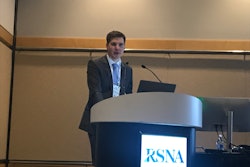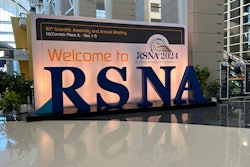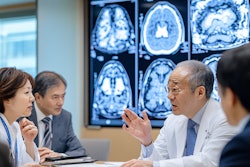Dear AuntMinnieEurope Member,
The scientific quality of the ECR has improved dramatically over recent years, and it's become the European radiology event not to miss. But if you were to give medical imaging researchers the choice between presenting in Vienna or Chicago, I suspect most would opt for the latter. The RSNA is still the place to be, and it remains the unofficial world congress.
European presenters have made a big impact at this week's meeting. For instance, Norwegian researchers showed how an AI fracture detection model significantly improved clinical workflows, even though it did not save radiologists a great deal of time.
Also, a U.K. team chose the RSNA to present the preliminary findings of the important LungIMPACT study. The aim is to determine if AI helps identify chest x-rays from patients who will benefit most from same-day CT, triaging for an immediate review and report.
A German interventional radiologist also delivered a strong message about AI. Dr. Benedikt Michael Schaarschmidt from Essen said most AI-related publications focus on pre-interventional imaging. The biggest obstacles for AI are variable examination protocols, data management issues, and a lack of structured reporting, he said.
On Tuesday, a special session on Japan caught our attention, particularly the country's approach to MRI safety. It will be intriguing to see how the new database of MRI reports develops.
In kitchen design circles, quartz worktops are proving extremely popular these days, but a new study presented at RSNA highlighted the health risks involved for those working with artificial stone.
AuntMinnie.com had a team of five editors onsite in Chicago, and you can view their full coverage in RADCast @ RSNA2024. Also, we'll post further reports about the congress throughout December.
Philip Ward
Editor in Chief
AuntMinnieEurope.com




















